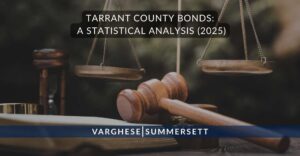Dallas Police Chase Suspect in Stolen Ambulance
April 6, 2021
A man is in custody after police said he stole an ambulance from a Dallas fire station and led police on a chase through several North Texas counties.
Police said the man, who has not yet been identified, took the ambulance Monday morning from Fire Station No. 53 in east Dallas. He was later spotted by police driving the ambulance in the southeast Dallas.
The driver refused to stop, and led police on a chase for more than an hour, including off-road and through neighborhoods.
Police eventually disabled the ambulance with spike strips, causing the ambulance to bottom out on a curb.
The driver bailed out and tried to outrun police. He was taken into custody a short time later.
No one was injured during the police pursuit, which was captured live by news helicopters.
The man is likely facing a number of charges, including evading arrest in a motor vehicle, evading on foot, and felony theft of a vehicle.
If convicted of the theft, the suspect could also face increased punishment because the offense occurred during a disaster declaration.
Last year, Governor Abbott issued a disaster declaration due to COVID, which increases punishments by one level for a handful of offenses, including theft. Yesterday, that disaster declaration was renewed once again by the governor.
Although it may seem bizarre and rare, there have been numerous cases of stolen ambulances in Texas. Earlier this year, another ambulance was stolen in Dallas. And last year, an ambulance was stolen in Fort Worth.
In an even stranger coincidence, last year an ambulance was stolen from the exact same fire station as the one yesterday. It was later recovered in Louisiana. No word on whether the two cases are connected.
So the entire incident was caught on camera, but is it defensible? The question you have to ask it why this happened? Was the driver suffering a mental health episode at the time? Does he have a history of mental illness or substance abuse? Is his background mitigating enough to warrant leniency from the state?
All of this remains to be seen.
Plano Police Change Marijuana Arrest Policy
April 5, 2021
Last week, Plano Police Chief Ed Drain announced that his officers will no longer arrest people for possessing two ounces of marijuana or less, which is normally a Class B misdemeanor punishable by up to a 180 days in jail.
Instead, officers may, at their discretion, issue a ticket for possession of drug paraphernalia. That is a reduced charge punishable by up to a $500 fine paid in municipal court.
The department changed its policy after a review of costs and trends stemming from marijuana arrests. The Chief said the review showed racial disparity, specifically more African Americans are arrested for minor amounts of marijuana – even though surveys show white, black and hispanics use marijuana at a similar rate.
The Chief said it also not cost-effective to arrest people for low-level amounts of weed. Now that hemp is legal in Texas, police must pay to have marijuana tested to determine its THC content before cases are accepted for prosecution.
So where do other North Texas cities stand on low-level marijuana arrests?
Under Texas law, police departments can implement a cite and release policy for possession of marijuana under four ounces. Dallas police already follow a “cite and release” policy. And late last year, Fort Worth police announced they are no longer arresting or citing people for low amounts of pot.
Decriminalizing marijuana is a growing trend in the lone star state.
More than 50 marijuana related bills have been filed so far this year in the Texas Legislature, covering a range of issues from decreased penalties to outright legalization.
Well, keep an eye on them to see which ones gain traction.
Audit: Tarrant County Coroner Made Dozens of Mistakes in Autopsies
April 1, 2021
A jaw-dropping audit has revealed that a suspended Tarrant County coroner made 59 mistakes in 40 death investigations – and there were mistakes in the audit as well.
Dr. Marc Krouse, who has been with the Tarrant County Medical Examiner’s Office since 1981, has been suspended and his last day will be April 24.
The audit was ordered after investigators realized Krouse missed a bullet in a homicide investigation during an autopsy in September. The victim’s body had to be exhumed.
The audit, which was conducted by Tarrant County Chief Medical Examiner Nizam Peerwani, reviewed 40 death investigations handled by Krouse over a 10-mnth span and found 59 mistakes.
According to the audit, Krouse repeatedly failed to request or review ambulance reports and hospital records. In some cases he failed to confirm a victim’s identity by fingerprint or other scientific means. In two cases, Krouse’s mistakes were called “egregious.”
What’s more, numerous mistakes have now also been found in the audit itself. Some ages, dates and addresses are inaccurate, according to NBC 5. In one instance, the audit claimed the autopsy of the 15-year-old boy was done on June 22 — four days before his death was reported on June 26.
Medical Examiner Nizam Peerwani has said the mistakes will be corrected and a new audit will be sent by the Tarrant County District Attorneys Office to defense attorneys.
The Dallas District Attorneys Office has been appointed to do an independent full-scale review of Krouse’s work.
The ramifications of the Krouse’s errors are far-reaching. More than 400 pending cases in Tarrant County could be impacted.
Qualified Immunity for Police: Where Does Texas Stand?
March 31, 2021
The New York City Council has passed legislation that effectively ends qualified immunity for police officers in cases of excessive force, making it easier for people to sue officers.
Qualified immunity is a legal doctrine that, for decades, has prohibited police officers from being sued for alleged misconduct – unless the officer clearly violated an established constitutional right. The concept has made it nearly impossible to hold officers personally accountable.
Qualified immunity has become a focus of police reform across the country in the aftermath of protests sparked by the death of George Floyd.
Floyd, who is black, died after a white Minneapolis police officer kneeled on his neck for nine minutes and 29 seconds. That officer, Derek Chauvin, is currently on trial for murder.
So where does Texas stand on qualified immunity and police reform in the wake of the civil unrest?
A sweeping police reform bill, called the George Floyd Act, was presented last week to the Texas House Committee on Homeland Security and Public Safety. The bill – House Bill 88 – seeks to ban chokeholds and required deadly force to end the “moment the imminent threat of death” is eliminated. It would also create the duty for officers witnessing excessive force to intervene and render aid.
The bill also addresses qualified immunity – and that has become a sticking point in the Republican-led legislature. Some police officials want that part of the bill removed and that issues was heavily debated last week during the hearing.
The bill’s author, state Rep. Senfronia Thompson, a Houston Democrat, says qualified immunity is a problem and it needs to stay in the bill.
After six hours of testimony, lawmakers left the matter pending without voting on the bill.



